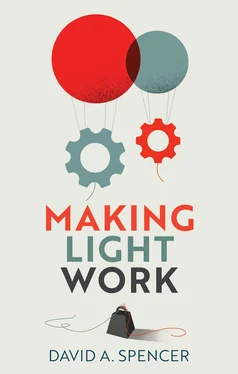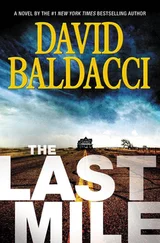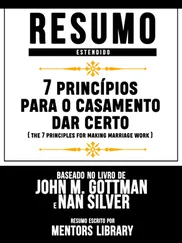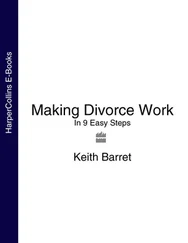The book engages with ideas from past and present literatures on work. The account is not necessarily exhaustive (e.g. it largely ignores consideration of forms of unpaid work). But it is, hopefully, useful and instructive in setting out some key areas of debate and controversy in the study of work. A distinctive aspect is the attention given to the costs as well as benefits of work, not as contingent features, but as system-wide outcomes. I make the point that capitalism, as a system, creates alienating forms of work. At the same time, however, I argue for change in the system of work, not just to negate alienation linked to work, but also to create the conditions for non-alienating work in the future. The goal of creating a different future of work – one where work is human, as opposed to an alienating activity – drives the arguments in the book.
Here I seek inspiration in the writings of some prominent critical thinkers, notably Karl Marx and William Morris. Marx’s ideas on the alienation of work under capitalism are relatively well known – however, as I will argue, his broader vision of negating work alienation and of returning meaning to work in a post-capitalist future have tended to be overlooked in debate, including in some radical circles. An aim of this book is to restate and revive this vision as part of a broader critical analysis of work.
William Morris – the nineteenth-century artist and socialist – is much less well known than Marx. Yet his writings on the costs of work and on the possibilities for recreating work beyond capitalism match with those of Marx. Indeed, Morris’s own thoughts on the present and future of society were directly inspired by Marx. I will draw on Morris’s ideas to show the scope for transforming work and creating a future society where meaning as well as pleasure can be returned to work.
Politically, the book sides with arguments that seek radical change. I argue against the view that capitalism is the end of history or the best of all possible systems. Instead, I put forward the argument for a world beyond capitalism. Following Marx and Morris, I see capitalism as a barrier, not just to more time away from work, but also to more rewarding and meaningful work. The agenda for change which the book supports aims to secure a society that enables everyone not only to work fewer hours, but also to work better. I argue that such a society cannot be realized while capitalism remains in place, and that a new system will be required to bring forth the forms of work and life that are compatible with wider goals of economic sustainability and human flourishing.
In writing this book, I am conscious of a number of recent books on the subject of work. These range from general histories of work (the idea and activity) through to direct critiques of work. 3Prominent in critical discourse are perspectives promoting a ‘post-work’ politics. These perspectives side with the view that work should be rejected and ultimately eliminated. They also feed broader narratives about the need to secure a post-capitalist future – one where we work as little as possible and enjoy our lives with a minimal exposure to work. 4
Interest in work has also been fuelled by new debate on the progress of technology and the possibilities for automation. Several books now predict that work for wages will decline in the future. 5This decline is linked to rapid and seemingly unstoppable advances in new digital technologies. For some, there is the prospect of a ‘world without work’. This prospect is met with both fear and hope and is used to support alternative policy proposals. For example, it has led to calls for a ‘universal basic income’ (UBI) and a four-day work week.
I address critically contributions to the post-work literature as well as to the modern debate on automation and the future of work. I take an opposing position. In terms of post-work ideas, I argue for the transformation of work, as opposed to its negation. The idea of negating work betrays a lack of imagination about how work can be recreated in the future. On the topic of automation, I debate whether society would be better or worse off by using technology to replace human labour. Here I suggest that a progressive case for reform must embrace the goal of putting technology to use in reducing work hours while enhancing the quality of work. In this case, moves can and should be made to achieve both less and better work.
There are other notable aspects of the book. One aspect relates to the coverage of ideas. Given my background as an economist, there will be references to the economics literature. This reflects partly on how economics has influenced the wider understanding of work – in particular, economics has helped to promote an understanding of work as an instrumental activity that is performed mainly for money. Economics has also presented work as a cost and sought to elevate the benefits of higher consumption – in this respect, it has embedded an ideology in support of higher economic growth. I will take issue with this way of thinking about work and will point to the need to look beyond economics in understanding the meaning and role of work. Given my wider concern for interdisciplinary research, there will also be an integration of ideas from different disciplines and subject areas. Broadly, the book can be seen as a contribution to the development of a political economy approach to the study of work.
In a previous book, I developed ideas towards a political economy of work – in particular, I examined how ideas about work had evolved and changed in economics, both past and present. 6The present book pushes the debate a stage further, by examining how work might be studied differently and reimagined in the future.
This book is written at a time of crisis, not only of work, but of society in general. This crisis has been created by COVID-19. To be sure, work was not working for the majority before the onset of the pandemic. In the UK as well as the US, for example, problems of in-work poverty have coincided with issues of unequal pay and long work hours. But COVID-19 has magnified and deepened the problems of work, in part by adding to unemployment, but also by increasing workloads and creating new dangers for those in work. So-called ‘key workers’ (e.g. in health services) have felt particular pressure, being required to work excessive hours and under conditions that present direct harms to their health.
I recognize that COVID-19 has hit some groups more than others – minorities, for example, have faced a higher death toll, partly because of their exposure to jobs in which risks of harm have been higher. Women, too, have faced higher burdens of work (both unpaid and paid). The pandemic has revealed starkly the inequities in society and the unfitness of the present capitalist system as a means to meet our collective and individual needs. 7
But I will suggest through the pages of this book that a different future can and must be created. Contemporary debates focus on ‘building back better’ – creating a better, more robust future. 8These debates can have a hollow ring, in the sense that they can cloak a call for the restoration of the same system that existed before COVID-19 struck – one that left society exposed to the pandemic once it hit. Rather, my argument is that the crisis must be a moment for critical reflection on the present and future of society – that is, it should lead us to question the current order of things and to build a different system where we can all live and work in ways that not only protect our health, but also enable us to carry out activities (including in work) that bring meaning and pleasure to our lives.
In promoting alternatives beyond the crisis, this book supports the idea and goal of lightening work. I argue that the crisis linked to COVID-19 has shown how work must be shared out in society and how lighter work for all is a laudable and potentially achievable goal. But I also argue that the crisis reminds us of how work should be improved upon in qualitative terms. We need to discuss what essential work is and how it is to be directed and organized in our workplaces. In essence, if a better future of work and life is to be achieved, then we must make strides to lighten work, in terms of both the hours it occupies in the day and the quality of experience it offers in our lives. This book, then, seeks to promote the lightening of work as a specific political demand.
Читать дальше












